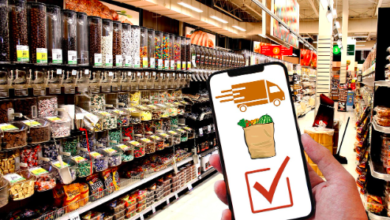Foods to Avoid with Braces and Healthy Alternatives

Braces are a big step toward a better smile, but they also mean some changes in your diet. You might wonder, what can and can’t you eat with braces? The truth is that diet and orthodontic treatment go hand in hand. A healthy diet supports healing, immune health, and strong teeth, while braces can limit what you eat or change how you chew.1 Eating the wrong foods can damage your braces and slow your progress, but choosing the right options keeps your treatment on track.2 In this blog, we will share foods to avoid with braces and suggest tasty, braces-friendly alternatives to make your journey easier and healthier!
Sticky and Sugary Snacks
Sticky and sugary snacks can be harmful to both your teeth and braces. When you eat sugary foods or drink sugary drinks, the bacteria in your mouth produce acid, which can damage the enamel of your teeth and cause tooth decay. This acid can continue to affect your teeth for up to an hour after eating.2 Sticky treats like caramel, taffy, and chewy candies can get stuck in your braces, making it harder to clean your teeth properly. This can lead to plaque buildup, which, if not cleaned away, can cause damage to your teeth and braces. Poor oral hygiene can make the situation worse and cause white spots on your teeth around the brackets.2,3
To keep your braces in good condition and your treatment on track, it is important to limit sugary snacks and drinks, especially fruit juices to mealtimes.2 Always practise good oral hygiene to prevent plaque buildup and tooth damage.
If you are wondering, what can’t you eat with braces, avoid these sticky and sugary snacks for a smooth treatment journey.
Hard and Crunchy Foods
While braces are built to withstand regular wear, certain foods can still cause damage. Hard and crunchy foods, like hard candies, nuts, and popcorns, can break wires, bend brackets, or cause other issues. Eating whole apples or corn on the cob can damage your braces, as can biting into crunchy raw vegetables and fruits. These foods exert too much pressure on the brackets and wires. Foods like pizza crust, bagels, hard rolls, and ice should be avoided, as they can damage the delicate parts of your braces. Snack chips and pretzels can also cause damage. To protect your braces, avoid these foods or make them softer by cooking, steaming, or cutting them into smaller pieces.2,3 Taking these steps helps keep your braces safe and ensures your treatment stays on track.
After all, braces prices are an investment, and you want to make sure your treatment goes smoothly without the risk of costly repairs from damaging hard foods.
Acidic and Sour Foods
Acidic and sour foods can significantly impact braces and oral health. Consuming citrus or citrus-flavoured, carbonated, or sour foods and drinks should be limited because they wear away tooth enamel, leading to erosion. Nutritious acidic foods like tomatoes and citrus fruits can erode enamel over time, so it is best to consume them as part of a meal rather than alone. Soft drinks, even sugar-free options, are acidic due to carbonation, which raises the acid level of the drink, regardless of its flavour. Similarly, citrus-flavoured drinks like lemon, lime, and orange juices are high in acid and should be enjoyed sparingly. To protect your braces and teeth, it is essential to limit the consumption of acidic and fizzy drinks and enjoy sour foods only occasionally.2,4
Healthy Alternatives
Braces require changes to your eating habits, but nutrition shouldn’t be compromised. A balanced diet ensures you stay healthy and helps your treatment progress smoothly. So, what can you eat with braces?
Here are some tips on healthy food choices and how to eat comfortably with braces:
- Soft foods are ideal for minimising discomfort and protecting braces from harm. Great options include mashed potatoes, scrambled eggs, oatmeal, soft pasta, steamed vegetables, bananas, and other soft fruits, as well as smoothies and soups.2,3
- Dairy items like milk, cheese, and ice cream are helpful because they’re soft and support bone adjustment as your teeth shift during orthodontic treatment.1
Adjusting to braces requires some changes in your eating habits to keep your teeth and braces safe.
- Slice food into smaller portions to lessen the pressure on your braces.
- Eat softer foods like mashed potatoes, yoghurt, and smoothies after adjustments.
- Avoid hot or cold foods to prevent sensitivity.
- Take small bites and stay away from tough or crisp foods that may harm your braces.
- Drink plenty of water to rinse away food particles and keep your mouth clean.3
Following these tips can make your braces journey more comfortable while protecting your dental health.
If you are looking for orthodontic treatment, clear aligners can be a discrete and comfortable alternative to traditional braces treatment with much lesser food restrictions. These are almost invisible, custom trays that gradually straighten your teeth, and unlike traditional braces with wires and brackets, they are removable, giving you more freedom when eating.5 Plus, with the aligner prices at Toothsi, you can enjoy a flexible and affordable alternative to traditional braces.6
Conclusion
Maintaining a balanced, nutritious diet and practising good oral hygiene are essential during orthodontic treatment to ensure your teeth stay strong and healthy. By avoiding foods that are sticky sugary hard acidic you can prevent damage to your braces and complete your treatment smoothly. Opting for softer, nutrient-rich foods like mashed potatoes, scrambled eggs, and smoothies can help keep your mouth comfortable and your braces intact. With good oral hygiene and smart food choices, you will make your orthodontic journey easier and more effective. And if you are looking for teeth straightening options with fewer food restrictions, it is worth considering the braces vs aligners choice.
FAQs
- What to eat in the first week of braces?
Soft foods like mashed potatoes, scrambled eggs, smoothies, and soups are ideal during the first week to avoid discomfort and protect your braces.3 - What can you not have with braces?
Avoid sticky, hard, crunchy foods like popcorn, nuts, caramel, and gum, which can damage braces and hinder progress.1,3 - What can you eat and not eat with braces?
Eat soft, easy-to-chew foods such as yoghourt, pasta, and steamed vegetables, and avoid hard, chewy, or acidic foods that could cause damage or discomfort.2,3 - Can I have gum with braces?
It is best to avoid gum with braces, as it can get stuck. If you want to have, choose sugar-free gum and chew carefully.2 - What to eat on the first day with braces?
On the first day, eat soft foods like soup, yoghurt, mashed potatoes, and smoothies to minimise discomfort and protect your braces.2,3 - Can I get braces with gingivitis?
You can get braces with gingivitis, but it is important to treat it first. Your dentist may recommend a cleaning before starting treatment. - Can people with braces have sugar-free gum?
Yes, sugar-free gum is fine with braces, but chew gently to avoid damaging your braces. Avoid sugary gum that can cause plaque buildup.2



